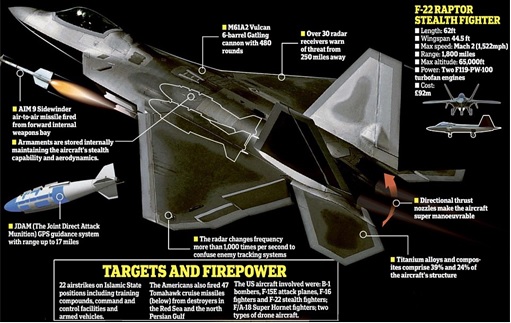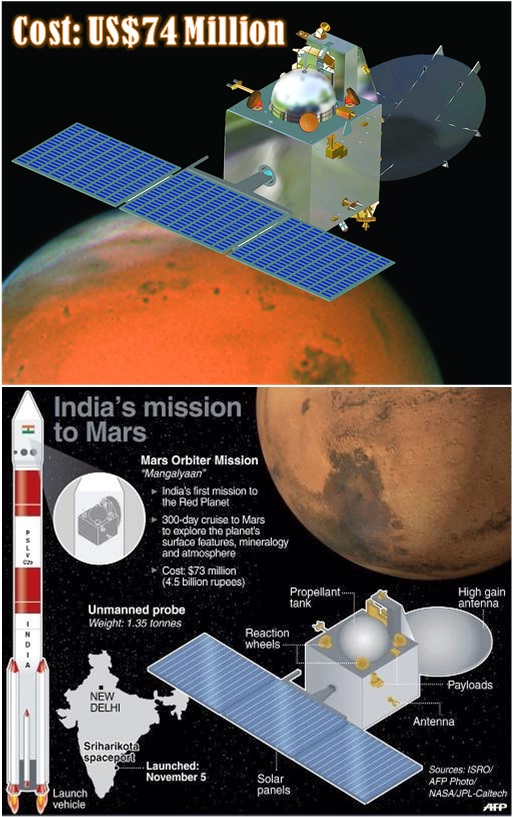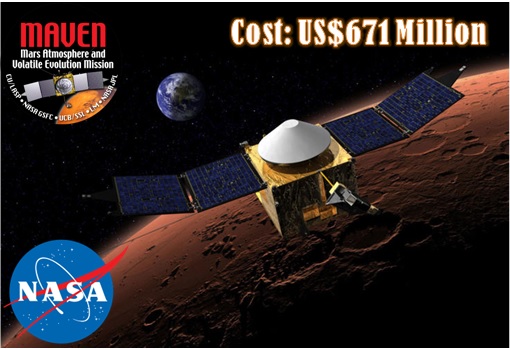At least 120 militants were killed after the United States and its Arab allies – Bahrain, Jordan, Qatar, Saudi Arabia, United Arab Emirates – unleashed air strikes in Syria on Tuesday, Sept 23. Finally, lame duck Obama found his spine to do what he should have done ages ago. And it appears Britain MPs have been scrambled for an emergency meeting to join the bombing spree, so we can expect more fireworks in Syria.
Again, the latest strikes show that the America will not tolerate or negotiate when their interest are at stake. And their main target was not even the ISIS jihadists. If you understand the United States “secret” military interest, the country doesn’t actually care about the huge mess that is happening in the Middle East, namely the emergence of ISIS in breaking apart Iraq, Syria and other Arab countries around the area.
Commercially, the messier Middle East becomes, the merrier U.S. military manufacturers will be. And what better way to test their new weapons than to make a couple of bombings on such countries. The only reason why Obama administration reluctantly launched the strikes was to take the opportunity to unknown al-Qaeda affiliate “Khorasan” group, of which the intelligence believes is nearing a similar 9/11 “execution phase” against airports and passenger planes in the West.
So, while 14 ISIS targets were bombed, the American also sent Tomahawk cruise missiles into Khorasan’s hideouts, training camps and bomb-making factory. Obama was also careful not to risk American forces during this air campaign, not that he could considering his already pathetic low job approval rate. Enter the rare and expensive military gadgets – Transformers look-alike F-22 Raptor stealth fighters.
The efficiency of deadly Russian-made BUK surface-to-missiles have been proven after the downing of Malaysian Flight MH17 recently. And Syria has a couple of them waiting impatiently. Hence, even after Obama administration briefly told Bashar al-Assad regime about the incoming attacks, they sent in only F-22 Raptors to do the work because the Pentagon did not trust the Syrian military would send their BUK system for a short vacation.
But the Raptors project is a super expensive affair. Instead of the 750-strong fleet originally envisioned, the Air Force received only 187 Raptors and terminated in 2009 due to high cost to operate and difficult to maintain. Raptor cost the United States Air Force about US$68,000 per hour to operate once maintenance and other factors are added in. So, how much was spent during the Tuesday’s air strikes?
According to the Pentagon, the Navy fired 47 Tomahawk missiles, each of which cost about US$1.6 million, for a total of $75.2 million. Assuming a mission duration of about six hours, and a strike package consisting of four F-22s, four F-15Es, four F-16s, two B-1 bombers and four MQ-9 Reapers, the total cost of Air Force portion would be about US$3.9 million. Thus, in total, the Syria air strikes cost American taxpayer roughly US$79 million.
That’s more than what India had spent after successfully placed its robotic probe satellite – named Mangalyaan – into orbit around Mars yesterday. It was Indian’s first attempt and the historical 10-month journey from Earth to Mars cost the country’s space mission about US$73 million – cheaper than the air strikes on ISIS and Khorasan terrorist groups. Interestingly, days before Indian’s success, United States had also placed its own satellite.
And just how much have the United States spent sending NASA’s MAVEN spacecraft orbiting the Red Planet? Believe it or not, it cost the American taxpayer a whopping US$671 million. That’s more than 800% of what Indian needed to do the same task. But if the U.S. do not spend so much, it probably can’t show how sophisticated, luxury and advanced their technology are, right?
Other Articles That May Interest You …
- Juliet’s $10 Million Awesome Stealth WarShip That Flies Through Bubble
- Here’s How Ferguson Police Force Eerily Looks Like Military Soldiers (Photos)
- Stunning Photos When 42 Warships & Submarines Steaming In Close Formation
- The Return Of Black Box & Bodies, Thanks To “Secret Diplomacy” Or Was It “Money Diplomacy”?
- Here’s How Russian-Made Buk Missile Systems Shot Down Flight MH17, In 9.86 Seconds
- Sabah Invasion – Another Najib Govt’s Screw Up?
- 10 Most Expensive US Military Vehicles You May Not Know

|
|
September 25th, 2014 by financetwitter
|


|

|

|

|

|

|

































Comments
Add your comment now.
Leave a Reply